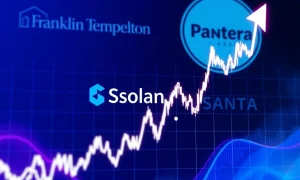The emergence of artificial intelligence is transforming global commerce fundamentally. Consequently, Ethereum’s ERC-8004 standard represents a groundbreaking development for the AI agent economy. This innovation enables completely autonomous machine-to-machine transactions without human intervention. Moreover, it establishes the essential infrastructure for self-sustaining digital ecosystems.
Understanding the AI Agent Economy Revolution
Traditional AI systems currently operate within isolated environments. However, the AI agent economy demands seamless interoperability between different artificial intelligence systems. Furthermore, existing protocols lack integrated payment mechanisms and trust systems. Therefore, Ethereum’s solution addresses these critical limitations effectively.
ERC-8004: The Foundation for Autonomous Commerce
ERC-8004 introduces three revolutionary on-chain registries. First, the Identity Registry provides verifiable digital identities for AI agents. Second, the Reputation Registry tracks performance and reliability metrics. Third, the Validation Registry ensures transaction integrity and security. These components work together to create a trustless environment for machine interactions.
Real-World Applications Already Deployed
Several projects demonstrate the practical implementation of this technology. For instance, Virtuals Protocol operates over 21,000 AI agents on Ethereum’s Base Layer 2. These agents provide diverse services including legal analysis and code review. Additionally, they autonomously negotiate and settle payments using stablecoins. This demonstrates the viability of decentralized AI marketplaces.
Ethereum’s Technical Advantages for AI Commerce
Ethereum’s multi-layer architecture provides unique benefits for the AI agent economy. The base layer handles high-value transactions securely. Meanwhile, layer-2 solutions manage high-volume microtransactions efficiently. This combination ensures both security and scalability for machine-driven commerce. Moreover, integration with HTTP 402 and EIP-3009 enables real-time stablecoin payments.
The Future of Autonomous Machine Transactions
The convergence of AI and blockchain technology creates unprecedented opportunities. Self-driving vehicles could autonomously arrange maintenance services. Content-generation AIs might negotiate usage rights instantly. Smart devices could manage their own resource allocation. These scenarios represent just the beginning of possibilities.
Institutional Adoption and Developer Support
Major technology companies and Ethereum core developers support ERC-8004. This backing ensures continued development and refinement of the standard. Furthermore, regulatory clarity around blockchain technology facilitates institutional adoption. Consequently, the infrastructure for autonomous AI commerce continues to strengthen.
FAQs
What is ERC-8004?
ERC-8004 is an Ethereum token standard designed specifically for AI agent interactions and machine-to-machine commerce.
How does ERC-8004 enable trustless transactions?
It uses on-chain registries for identity, reputation, and validation to create verifiable and secure interactions between AI systems.
What real-world applications exist today?
Projects like Virtuals Protocol already deploy thousands of AI agents offering services from legal analysis to code reviews on Ethereum’s network.
Why is Ethereum particularly suited for AI commerce?
Ethereum’s programmable infrastructure, layer-2 scalability solutions, and established DeFi ecosystem provide the necessary foundation for autonomous machine economies.
How do AI agents handle payments?
Through integration with stablecoins and payment protocols like EIP-3009, AI agents can autonomously negotiate and settle transactions in real-time.
What makes this different from traditional AI systems?
Unlike siloed AI systems, ERC-8004 enables cross-platform interoperability and autonomous economic interactions without human intervention.








